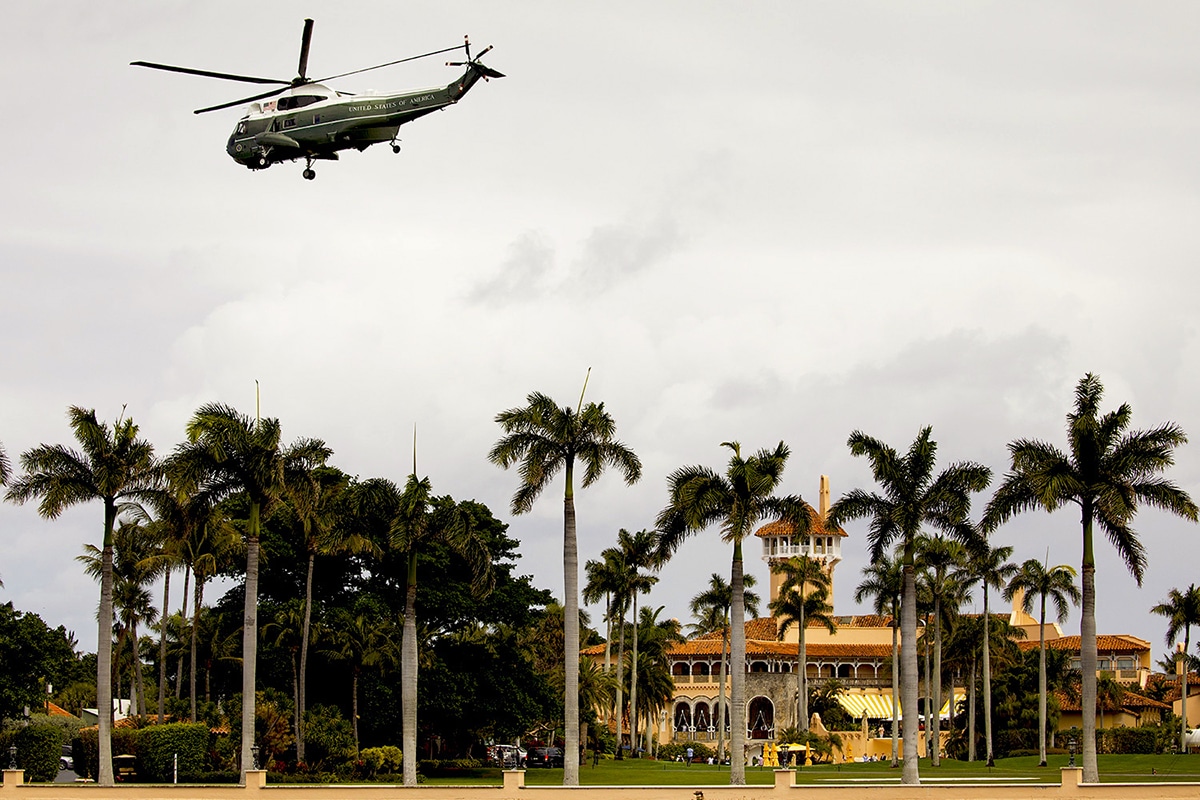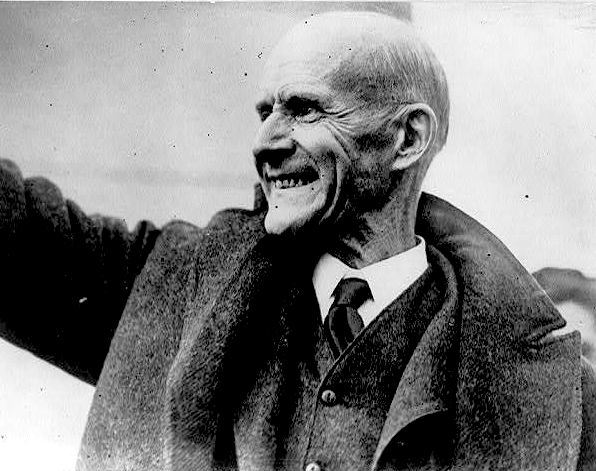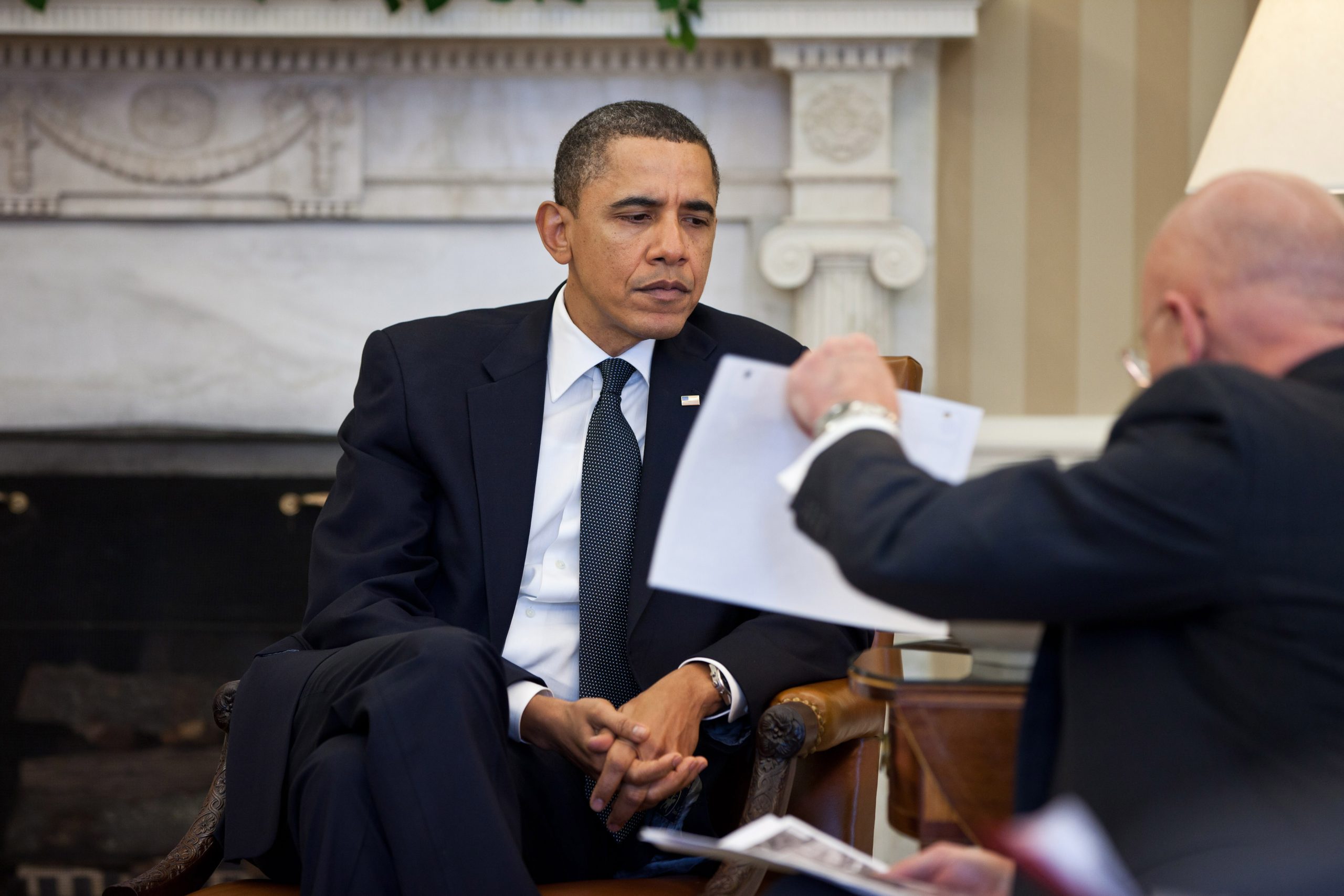Subscribe to Zero-Sum Pfear & Loathing



March 29, 2019: Marine One lifts-off after returning President Donald J. Trump to Mar-a-Lago. (White House, Joyce N. Boghosian)
by John Kiriakou | August 26, 2022
Former President Donald Trump shouldn’t be charged with espionage for taking classified documents with him —some of them apparently very highly classified — when he left the White House for semi-retirement at his Mar-a-Lago home.
Nobody should be charged with espionage unless they are working for a foreign power and mean harm to the United States. The Espionage Act, which was written 105 years ago to combat German saboteurs, is rarely used now to target spies and traitors. Instead, it’s used as a cudgel to silence whistleblowers, journalists, and occasionally a stupid former president.
To understand the damage that this deeply flawed law has done, and will continue to do, we have to look at its origins. The Espionage Act was written in 1917, at the height of World War I. The U.S. was panicked at the thought of German spies working undercover to steal its secrets and to disrupt its ability to produce war materiel and support its allies.
Congress drew up a law in which one provision, Section 794, made it a crime punishable by life imprisonment or death to provide “national defense information” to a foreign power. But another provision, Section 793, made it a crime punishable by up to 20 years in prison to “provide national defense information to any person not entitled to receive it.”
The problems with the law were myriad. First, nobody ever bothered to define what “national defense information” was. The law doesn’t even mention the term “classified information” because the classification system wouldn’t be invented for another 40 years.
Second, there was no “affirmative defense” written into the law. A defendant was forbidden from saying in court, “Yes, I gave national defense information to a reporter because I was revealing a crime” or “I did it in the national interest.”
And to make matters worse, the Sedition Act, which was passed a year later, amended the Espionage Act to criminalize many forms of speech, including “any disloyal, profane, scurrilous, or abusive language about the form of government of the United States, or the flag of the United States, or the uniform of the Army or Navy.”

Eugene V. Debs leaving federal penitentiary in Atlanta, Jan. 1, 1921. (Library of Congress)
The political persecutions began almost immediately. Eugene V. Debs, the Socialist Party nominee for president in 1904, 1908 and 1912 was sentenced to a decade in prison because he gave an interview in opposition to the draft. He ran for president in 1920 from prison and won nearly 50,000 votes. Socialist Charles Schenck was convicted of espionage for circulating a petition in opposition to the draft. Jehovah’s Witness leader Joseph Rutherford was arrested and charged with espionage for writing in a magazine,
“Nowhere in the New Testament is patriotism encouraged. Everywhere and always murder in its every form is forbidden. And yet under the guise of patriotism civil governments of the earth demand of peace-loving men the sacrifice of themselves and their loved ones and the butchery of their fellows, and they hail it as a duty demanded by the laws of heaven.”
Even a Hollywood studio was prosecuted under the Espionage Act. In United States v. Motion Picture Film, a federal court upheld the Justice Department’s seizure of the film, called Spirit of ’76, because a scene showed British soldiers being cruel to colonists. The Justice Department had argued that such a depiction, even if true, could undermine public support for the British in the world war.
The film’s producer, Robert Goldstein, was sentenced to 10 years in prison and fined $5,000. He served three years. These are only a few of the dozens of “espionage” prosecutions from the period.
The law’s Section 793 was largely ignored from the mid-1920s to the early 1970s, when the Nixon administration charged Daniel Ellsberg with multiple counts of espionage for releasing the Pentagon Papers to the media. The case fell apart when Nixon ordered his “plumbers” to break into Ellsberg’s psychiatrist’s office, steal his files and send them to newspapers.
Section 793 then went dormant again until Barack Obama was elected president in 2008. It was Obama, with his Nixonian obsession with national security leaks, who decided to use the Espionage Act as a political weapon to silence whistleblowers. And it was Donald Trump who wholeheartedly carried on Obama’s tradition of charging whistleblowers with one of the nation’s gravest crimes.
Between 1917 and 2009, three Americans were charged with espionage under Section 793 specifically for speaking to the media.

President Barack Obama studies a document held by Director of National Intelligence James Clapper during briefing, Feb. 3, 2011. (White House/ Pete Souza)
Barack Obama charged eight people with espionage for speaking with the media in the eight short years of his presidency. They were Thomas Drake (NSA), Shamai Leibowitz (F.B.I.), Stephen Jin-Woo Kim (State Department), Chelsea Manning (Army), James Hitselberger (Navy), Edward Snowden (NSA), Jeffrey Sterling (C.I.A.) and me (C.I.A.).
Trump went on to charge Reality Winner (NSA), Terry Albury (F.B.I.), Joshua Schulte (C.I.A.), Daniel Hale (Air Force), and Henry Frese (DIA). None of the 13 people charged were ever accused of providing classified or “national defense” information to a foreign power. Nearly all had spoken to the media in an attempt to report on waste, fraud, abuse, or illegality in national security.
And in perhaps the most notorious Espionage Act case, the Justice Department has charged WikiLeaks co-founder Julian Assange with multiple counts of espionage. It was Assange and WikiLeaks, of course, who reported that NSA was spying on American citizens in violation of U.S. law and its own charter.
It was Assange and WikiLeaks who broadcast video of U.S. helicopter crews murdering Reuters photographers and innocent civilians in Iraq.
It was Assange and WikiLeaks who told Americans about Vault 7 and what the C.I.A. was doing against American citizens, again in violation of the law.
Trump had his then-C.I.A. director, Mike Pompeo, come up with a plan to kill or to kidnap Assange in the streets of London, yet another patently illegal act. And don’t forget that Assange isn’t even an American citizen.
It is past time to scrap the Espionage Act. I agree that someone with access to classified information, working on behalf of a foreign power, ought to be punished. Severely. But that’s not what this is about. This is about the government punishing people who embarrass it.
When I was at the C.I.A., I sat next to a woman at work who had an affair with a former senior C.I.A. official who had gone on to work for CNN. In the course of “pillow talk,” she revealed classified information to him, and he repeated that information on CNN. An internal investigation soon found the culprit. Was she charged with espionage? No. A letter of reprimand was placed in her personnel file, she was suspended without pay for four weeks and she was barred from being promoted for two years. That was an appropriate punishment, especially since there was no harm to the national security.
Harm to the national security isn’t even a consideration anymore. Now it’s just about punishment and about making a political point. Scrap this law. Rewrite it the way it should be rewritten. And leave whistleblowers alone.
John Kiriakou is a former CIA counterterrorism officer and a former senior investigator with the Senate Foreign Relations Committee. John became the sixth whistleblower indicted by the Obama administration under the Espionage Act—a law designed to punish spies. He served 23 months in prison as a result of his attempts to oppose the Bush administration’s torture program.